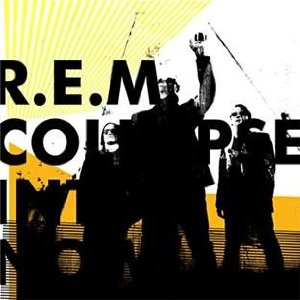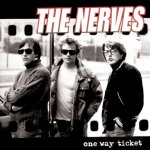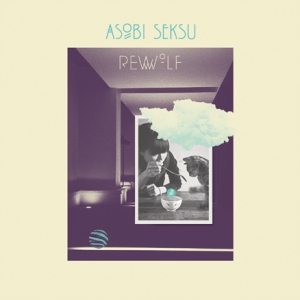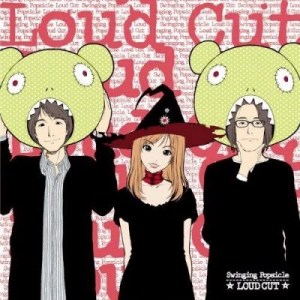 R.I.P. Thin White Duke. You will be missed.
R.I.P. Thin White Duke. You will be missed.
R.E.M.’s break up
It’s been a couple weeks since R.E.M. announced their break-up, so obviously I’m a bit late to the party on that. And really, I don’t have much to say about it that hasn’t been said by others. Though I have a long history with the band (a pretty big fan in high school and college, and a resurgent interest the past few years), they were never a change-your-life type band for me, the way they seemed to be for others (now, the Replacements, they changed my life!). So I’m just going to throw up this link, to Rolling Stone’s 1987 cover story about the band, which they kindly put online last week.
I actually read this article back when I was 15 or so, and it served as my introduction to the band’s story and mythology, though I couldn’t tell you whether I read this before or after I had actually started listening to the band (which happened when my older brother went off to college and I pilfered his cassette copies of Life’s Rich Pageant and Fables).
To my surprise, I actually remember a lot of stuff from the article — the description of Peter Buck on stage “cutting a Keith Richards-esque figure”, Buck’s comment about how he thought the band had “one of those Top Twenty all-time rock & roll great records” in them — so it must have made a real impression on my young mind. I guess rock music in general had a mystique to teenaged me that’s hard for today’s me to grasp.
Anyway, thanks for the music, guys.
Collapse Into Now out today!
 When R.E.M. made a comeback bid in 2008 with Accelerate, its aggressiveness and off-the-cuff feel were jarring after a decade of overly thought out (and largely ignored) experimental pop albums. I was excited to hear the band rock again — often with surprising venom — and hoped that it was a sign of things to come; as I wrote at the time: “if the band could find a way to retain the urgency and excitement of this record, while adding some of the polish of their “mature” albums, they could have some really great albums in their future.”
When R.E.M. made a comeback bid in 2008 with Accelerate, its aggressiveness and off-the-cuff feel were jarring after a decade of overly thought out (and largely ignored) experimental pop albums. I was excited to hear the band rock again — often with surprising venom — and hoped that it was a sign of things to come; as I wrote at the time: “if the band could find a way to retain the urgency and excitement of this record, while adding some of the polish of their “mature” albums, they could have some really great albums in their future.”
So I was pretty excited back in December when Stereogum posted “Discoverer”, the lead track from the band’s new album Collapse Into Now. A chunky, riff-driven rocker, it replaced the ragged, live-in-the-studio vibe of Accelerate with a polished swagger reminiscent of the band’s mid-90’s work. Subsequently “leaked” tracks indicated that the band was going for an eclectic effort this time out — while “Mine Smell Like Honey” was another fast song, a stomping fuzzy garage rocker highlighted by Mike Mills’ backing vocals (too bad about the title, though), “Oh My Heart” was a gentle, mandolin-driven ballad, and “Uberlin” was a mid-tempo acoustic number echoing 1993’s “Drive”, but replacing that song’s exhausted tone with a more hopeful vibe. Now the whole album is streaming off the Rolling Stone site, and having been listening to it non-stop for the past week, I can honestly say I’m thrilled — it sounds great, and is indeed all over the place stylistically.
Flashback: Jawbox’s Savory
I stumbled on this video the other day, which I’d never actually seen before even though I absolutely worshiped Jawbox at the time:
This is one cool-ass video, although one has to question what the guy at Atlantic who decided that this was a commercially viable single was thinking (post-Nirvana, I think a lot of record execs secretly decided that they had no idea what the kids liked anymore, hence the signing frenzy of all kinds of noisy, difficult underground bands).
It also reminds me of how awesome a live band they were, though to be honest I only got to see them once, on a split bill with Jawbreaker (and I think fluf?) at the Roxy in Los Angeles some time in the summer or fall of ’94. My friend and I argued all the way home about who put on a better show, but I thought Jawbox just ruled that night (though ironically, this was the concert that actually got me into Jawbreaker in a huge way, so it was a bit of a hollow victory for the Jawbox camp).
Damn though, I wish Jawbox had stuck together. Burning Airlines were okay and all, but For Your Own Special Sweetheart was just something else.
Is this blog dead?
Long time no blog. At the start of the year, I started a little post to say “happy new year”, in which I resolved to “write at least six times on my shitty blog this year” … except, fittingly, I never got around to posting the entry.
Weirdly, despite no post action since November, I continue to average 20 or 30 hits a day, mostly people looking for Japanese band Scandal. Given that there’s a fair amount of blog content on the band these days, I can only assume that Google gives me some special ranking boost for writing about them early, back in 2008.
As for me, I haven’t been particularly into music for a while, which is part of why I never write anymore. The aforementioned Scandal put out a new single last month, “Shunkan Sentimental”, but I wasn’t even aware of it ’til this morning, and now that I’m giving it a listen, it’s not really catching my ear. Whether that’s because the band has changed, or my musical interests have changed, or somebody pissed in my oatmeal this morning, I dunno.
 Personally? I’ve been listening to a lot of Bowie. Mostly glam-era Bowie — Ziggy Stardust
Personally? I’ve been listening to a lot of Bowie. Mostly glam-era Bowie — Ziggy Stardust, Aladdin Sane
, etc — but a bit of the new stuff too (Heathen
— surprisingly good!). Normally I’d chalk this up to the dread creeping nostalgia of middle age, but the fact is that this is the first time I’ve ever really gotten into Bowie … I tried at least once before, picking up a couple single
collections
about ten years ago, but neither of ’em really grabbed me (mostly, I think, because his singles tend towards his dramatic pop songs, “Starman” etc — if “Queen Bitch” and “Hang Onto Yourself” were there alongside “Rebel Rebel” and “Suffragette City”, I woulda been sold).
Oh and by the way, wife’s delivering a baby in the next week or two. Most likely this blog won’t see another post for quite a while ….
Things I would have written about weeks ago …
… if I hadn’t spent the past two four six eight weeks writing that last *@&!ing Scandal post:
 I went through a late 70’s power pop phase a month or so back, centered around classic L.A. trio the Nerves. Previously I’d only known them from two cuts on one of Rhino’s D.i.Y. comps
I went through a late 70’s power pop phase a month or so back, centered around classic L.A. trio the Nerves. Previously I’d only known them from two cuts on one of Rhino’s D.i.Y. comps (“Hanging On The Telephone” pretty much squashes everything else there), but that actually represented half the band’s official output — they released a single four-song EP in 1976 and then broke up, with members Peter Case and Paul Collins forming the Plimsouls and the Beat (respectively), and Jack Lee having some limited success as a songwriter. Last year, Alive Records put out a full-length collection of Nerves recordings, One Way Ticket
, collecting the EP, the never-released follow-up single, demos, live cuts, and three tracks from immediate post-Nerves projects (including a version of “Walking Out On Love” by interim Case/Collins band the Breakaways that I find superior to the version on the Beat’s first album). The first eight cuts sound like the core of one of those great lost pop records, and if you can get over the poor sound quality of the later tracks, there’s some great stuff there too. Alive has also put out a live set
(vinyl-only, alas) and the Breakaways demos
(on CD), but I haven’t listened to either yet.
 Asobi Seksu‘s Rewolf
Asobi Seksu‘s Rewolf, which I mentioned in passing here, has been out for a bit now, and I quite like it. Gorgeous acoustic re-recordings of songs from throughout the band’s catalog, the album has a mellow, late-60’s folk vibe, the songs largely stripped down to guitar and voice, occasionally augmented by flutes, chimes, or organ. The renditions vary in how far they stray from the original — “Breathe Into Glass”, for example, makes a 180° shift from the emotionally remote (frigid, even) original recording to a rather intimate, confessional piece, but “Urasaii Tori” (renamed “Bossa” here) largely retains its playful nature. I’m not sure how well this would work as an introduction to the band, but if you’re a fan, this is quite a treat.

Shonen Knife played at the Rickshaw Stop at the end of October, and I made a rare foray out to see them. At this point there’s only one original member left (the drummer looks like she hadn’t been born when the band formed in 1981, though Wikipedia tells me that she was in fact four), but the band still plays with infectious amateur enthusiasm. Their new album, Super Group (released in Japan in ’08 but just out recently in the States) is fun in the same way: catchy, silly, three-chord pop-punk.
Well, that’s it for now. Expect this quasi-hiatus to last pretty much forever.
October’s Scandal releases
Scandal’s new single has been out for two weeks a month six weeks now (I’ve been working on this post for a while!), and though I got my hands on a copy right after release, I haven’t been very on the ball about getting a post up about it (meh, this blog is suffering from a malaise). Anyway, here’s the cover art:
And just when I was happy to see them back off from the nose-bleeding school girl fetish look, too. Anyway, it came out October 14th, and although a video for “BEAUTeen!!” came out a bit before that, the A-side is actually a different song, “Yumemiru Tsubasa”. The single also includes the band’s cover of “DAYDREAM”, originally off a Judy and Mary tribute album.
To be honest, I think this may be the weakest thing Scandal has released to date — nothing on it is bad, but nothing is all that exciting, either. “Yumemiru Tsubasa” sounds like an anime theme song, which isn’t necessarily bad, but it’s also rather unmemorable, which is. Honestly, I’m not sure what’s wrong with this song — there’s some nice soaring guitars, and the bridge chugs along nicely … I guess the chorus just doesn’t really take off, so the song leaves no impression after it’s over. (Hell, I listened to the song for probably the 300th time two minutes ago, and I’ve already forgotten what the chorus sounds like). “BEAUTeen!!”, as I wrote before, is in the same boat — pleasant enough, but it doesn’t leave a mark. And as for “DAYDREAM” … well, it’s probably the best song here, if only because it’s a little faster and has some energy and spunk to it, but it isn’t a Scandal original, and it was originally released a while back anyway.
Am I just burnt out on Scandal? I was starting to think so, after following them pretty obsessively for the past year and a half. But then I gave a listen to their first full-length, Best★Scandal, which came out a week after “Yumemiru Tsubasa”, and it reminded me of how much more fun this band could be. There are three versions — the regular CD version, a CD plus DVD, and a limited edition CD plus book. Here are the covers:
- Best Scandal – regular edition
- Best Scandal – CD + DVD edition
- Best Scandal – limited edition
The album features all seven of the band’s singles (one, “Kagerou”, in a new version), along with six new tracks. Most of the new stuff is a bit mediocre, but the rush of listening to the older tracks back-to-back (they’re mostly sequenced on the first half of the CD) is a nice reminder of why I was enjoying their early run of singles so much. And there’s at least one great new song, “Ring! Ring! Ring!”, whose verses are, of all things, a sort of melding of boogie piano and doo-wop, but somehow it works long enough to get you to the super-sugary chorus. None of the other new songs are quite as good, but a few at least show promise — the glam stomp of “Anata ga Mawaru”, the mid-tempo “Kii to Yoru to Namida”. The worst song is easily the headache-enducing “Moroshi Night”, whose vamping keyboard part feels like an icepick to my brain. But all-in-all, the album is a pretty good listen, and is almost as good an introduction to the band as their first EP, Yah! Yah! Yah! Hello Scandal.
Sadly, still the band does not release a recording of “Playboy”. C’mon, guys, I’ve been waiting for you to record the damn song for forever ….
Asobi Seksu’s Transparence
 Transparence, Asobi Seksu’s new 10″, showed up on eMusic a few weeks back, settling my fears that it would be a vinyl-only release. I’ve been listening to it a fair amount, and it’s pretty enjoyable, though nothing earth-shaking.
Transparence, Asobi Seksu’s new 10″, showed up on eMusic a few weeks back, settling my fears that it would be a vinyl-only release. I’ve been listening to it a fair amount, and it’s pretty enjoyable, though nothing earth-shaking.
The title track, which appeared on Hush earlier this year, is given a brief new intro, galloping drums in place of the original rather ambient fade-in, which makes the song sound marginally more rock n’ roll, and works well in the context of an opening track. It’s a decent — but not fantastic — song, with some excellent parts that unfortunately don’t quite pull together correctly, and suffering (like the rest of Hush) from a lack of dynamics. The EP also has a remix of the song by Aa, which pushes the tribal drumming up a bit and otherwise cuts the song up a bit and makes it rather annoying.
The other two tracks — both Hush outtakes, apparently — are both pretty good, though. “Miniature Cities” is another slow, minimalist dream pop number, in the style of much of Hush, but it works pretty well, and probably benefits from being separated from its similar-sounding brethren. It builds to a nice crescendo around the four minute mark, when the sound thickens considerably into a dense, swirling soundscape. That said, it would have worked better in the “classic” Asobi Seksu style, with said crescendo slathered in layers of big guitars.
My favorite track is “Urasai Tori”, a goofy little pop song with a shifty rhythm, a rather mournful harmonica, and rapid-fire woodpecking as a percussive backdrop. It’s lightweight but rather pretty, and while I can see how it wouldn’t have fit onto Hush that well, it seems a shame to leave it buried as a b-side.
 Meanwhile, Asobi Seksu has another record coming out, on Polyvinyl on October 30th. Called Rewolf, it’s a collection of acoustic re-recordings of songs from the band’s catalog (along with a few covers), recorded at Olympic Studios in London. There’s an MP3 of their cover of Hope Sandoval’s “Suzanne” here — very nice, with a heavy 60’s vibe courtesy of the fairly ornate production involving chimes and flute as well as strings. If the rest of the record sounds like this, I think it will be quite good. (If nothing else, it has the best cover art on an Asobi Seksu release since the “Stay Awake” single in 2007.)
Meanwhile, Asobi Seksu has another record coming out, on Polyvinyl on October 30th. Called Rewolf, it’s a collection of acoustic re-recordings of songs from the band’s catalog (along with a few covers), recorded at Olympic Studios in London. There’s an MP3 of their cover of Hope Sandoval’s “Suzanne” here — very nice, with a heavy 60’s vibe courtesy of the fairly ornate production involving chimes and flute as well as strings. If the rest of the record sounds like this, I think it will be quite good. (If nothing else, it has the best cover art on an Asobi Seksu release since the “Stay Awake” single in 2007.)
Loud Cut
 I was surprised last week to find out that Swinging Popsicle has a new album out, called Loud Cut. It appears to be not so much a proper album as a hodge-podge of random cuts: video game themes, a cover or two, a few tracks off previous albums. Perhaps as a result of this, it doesn’t hold together as well as it could, but there’s still some good stuff here.
I was surprised last week to find out that Swinging Popsicle has a new album out, called Loud Cut. It appears to be not so much a proper album as a hodge-podge of random cuts: video game themes, a cover or two, a few tracks off previous albums. Perhaps as a result of this, it doesn’t hold together as well as it could, but there’s still some good stuff here.
Bassist Hironobu Hirata was in charge of the background music to the video game Sumaga, and a lot of the material here originates from that project. Album openers “Perfect Loop” and “(a) SLOW STAR” were both theme songs to the game, and three other songs (“Meet U”, “UN-K.O. ~Our Day Will Come~”, and “Good Time”) are vocal versions of background music tracks from the game. I wouldn’t be surprised if some of the other stuff here is also from Sumaga (I don’t have the game or its soundtracks); certainly, the creepy instrumental “Tragedy In Your Brain” sounds like a video game background track.
Beyond the soundtrack stuff, there’s also an Auroranote cover (“Seijyaku to Ryuusei”), two tracks apiece from the last two Popsicle albums (Transit and Go On), and two of the bands’ early b-sides, apparently re-recorded (I’ve never heard the original versions, but Georide marks both セルフカバー, “self-cover”). If you’re keeping track, that accounts for thirteen of the albums’ fourteen tracks — the fourteenth, “Kururi Sakura Hirari”, is listed as “Swinging Popsicle Ver.”, so maybe it’s a cover too?
There’s nothing wrong with odds-and-ends compilations, of course. The four Transit and Go On tracks at the end of the album seem like bizarre padding, but if you disregard them, you still have a 10-song mini-album, and a not bad one at that. Certainly, I’ve raved about “(a) SLOW STAR” before, and “Perfect Loop” is quite good too, continuing the band’s recent experiments adding subtle electronic elements to their music. “UN-K.O.” is also quite good, a big guitar song that comes up a bit short in the chorus department, but still rocks. Those are the main highlights, but the pleasant samba cut “Good Time”, the mid-tempo “Kururi Sakura Hirari”, and the Auroranote cover are all pretty good too. The low points are the rather pointless “Tragedy In Your Brain” and the overly dramatic piano ballad “Let Me Fly”.
At any rate, this album hardly supplants Go On as my go-to Swinging Popsicle album (despite the inclusion of that album’s brilliant title track), but it’s not a bad record to have around, particularly for the first six tracks. I’d say it’s not worth the import price for the physical CD, but for $10 off JapanFiles for the MP3, it’s well worth it.
eMusic, one year in
Has it already been a year since I signed up for eMusic? Apparently so. They gave me 25 free downloads to celebrate my anniversary last week, so I thought I’d write a little follow-up on how the service is working for me.
If I’d been writing this post back in April or May, the answer would have been simple, because eMusic has really served me well. The website works pretty well in terms of enabling exploration and discovery, and I find that having a certain number of downloads each month tends to keep me looking for new things to buy (useful now that I’m married and don’t slip off to the CD store every weekend). I do occasionally find myself burning through an entire month’s credit allotment on a whim (“I feel like disco this week!”) and then having no interest in that genre a week later. But that used to happen at the CD store, too.
However, things have changed a lot since the start of summer, when eMusic announced that they had inked a deal with Sony, the first major label to agree to put their catalog on eMusic. Along with this, they introduced album pricing and (sigh) a significant price increase. Needless to say, this has been controversial — eMusic has spent years marketing themselves to fans of indie rock and other niche groups, and many of them are now grumbling about having to pay higher prices in return for selections from a major label that they’re not interested in. I suspect eMusic has seen a fair amount of churn in their user base as a result.
My own feelings have been pretty mixed, and have see-sawed back and forth as more details came out. The price increase — from around 25¢ to around 40¢ a track — was painful, not because 40¢ is a lot per se (it puts an average album between four and five dollars), but because it makes taking chances and downloading albums on a whim less appealing. More annoying, the album pricing (topping out the price of some albums at 12 download credits, e.g. $4.80) — which was promoted as a straight win for the consumer — actually turned out to be a lot more complicated, because some songs could only be downloaded with the album, forcing you to use 12 credits to get some 8- or 9-track albums.
That said, I’ve largely made peace with the changes. I wasn’t really interested in the Sony catalog at first — outside of Cheap Trick, I wasn’t really sure what I’d find worthwhile (I already have all the Clash albums, and I have no interest in the Byrds or Bruce Springsteen), but I’ve since discovered a lot of other good stuff — Mott the Hoople, the Only Ones, Sly & The Family Stone. And I’ve been replacing a fair amount of proto-alternative-rock albums (Midnight Oil, Fishbone, Living Colour) that I had on CD back in the day but have long since sold off.
Anyway, I intend to stick with eMusic at least a while longer. Even with the higher prices, it’s still a pretty good deal, if not quite the steal it used to be.




